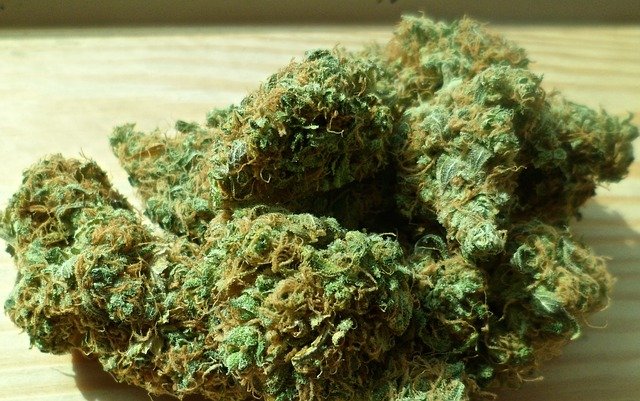The cannabis plant contains more than four hundred cannabinoids and terpenes that are thought to interact with neurotransmitters to create various effects that promote healthy immunological function. While most cannabis research has focused on cannabidiol (CBD) and tetrahydrocannabinol (THC), there is one cannabinoid that has received less attention. It’s called hexahydrocannabinol (HHC), and it’s gradually garnering favor in the wellness field due to its comparable effects to delta-9 THC’s molecular composition.
HHC offers extremely comparable effects to natural THC for people looking to use cannabis to support their health objectives or get high. This article delves into what HHC is, its effects, and other facts and information.
Table of Contents
What Exactly Is HHC?
HHC is a naturally occurring cannabinoid found in minute amounts in cannabis. Manufacturers force a chemical process in copious hemp-derived cannabinoids such as natural cannabinoids CBD and THC to turn them into HHC molecules to sell them on the market.
When American scientist Roger Adams combined hydrogen molecules with Delta-9 THC in 1944, it produced HHC. This is referred to as “hydrogenation.” Roger first used this approach to THC generated from marijuana plants, but since the 2018 Farm Bill went into effect, allowing cannabis harvests containing less than 0.3 percent delta-9 THC, more firms are using cannabinoid hydrogenation to make HHC from CBD.
Effects of HHC
HHC is a psychoactive chemical that generates sensations of euphoria, alterations in perception, changed cognition, and possible pain-relieving and anti-inflammatory qualities comparable to delta-9 THC. As people seek a legal way to enjoy the euphoric effects of marijuana, we’ve witnessed a surge in the use of THC isomers—variants of the famed delta-9 THC molecule. THC cannabinoid analog isomers that are popular include delta-8 THC and delta-10 THC obtained from hemp crops.
Many users relate the effects of this cannabinoid to those of delta-8 THC in terms of producing a more relaxed high as opposed to a simulated one. In terms of strength, hemp-derived THC delta-8 is around half as potent as delta-9 THC, while HHC is more powerful than delta-8 but less effective than delta-9.
Because hexahydrocannabinol is still relatively new, there isn’t much research examining its possible effects and safety.

Potential Advantages of HHC
Those who keep up with cannabis news may have already experienced some of the benefits of HHC products, but there is still so much we don’t know about this hydrogenated cannabinoid. The people who have tried it say that it provides a pleasant and mild high and some muscular pain alleviation. While it is essential to highlight that research on this topic had a somewhat limited scope regarding what was investigated and how far-reaching their results were, they were still conducted. Nonetheless, they are essential pieces of knowledge for anybody interested in the future of cannabis-based health products.
- HHC Has a Potentially Longer Shelf Life
Cannabinoids are temperature and UV sensitive, and when exposed to oxygen, their effectiveness reduces over time. HHC has a substantially longer shelf life than naturally occurring cannabinoids like THC and CBD, one of its most prominent advantages.
HHC has more hydrogenated carbons than THC, while THC lacks one of its ester molecules. These chemical modifications result in a more stable molecule with more excellent heat resistance, giving it a longer shelf life than delta-8, delta-9, and delta-10 THC.
- HHC May Improve Mood and Relaxation for Restorative Sleep
Many individuals think of cannabis as part of their self-care regimen to help unwind from a stressful day and get a good night’s sleep. HHC is classified as psychoactive since it affects the same CB1 receptors in the brain that can change perception and create bliss. The distinction here (compared to delta-9 THC) is that HHC, like delta-8 THC, provides a sensation of rest rather than excitation. People describe HHC as a more calm and clear-headed variant of the regular marijuana high.
- Pain Relieving Properties
One preclinical investigation on rats indicated that HHC has analgesic (pain-killing) properties. Again, there isn’t enough evidence to support its usage as an effective muscle relaxant and pain reliever, but preliminary research suggests that this cannabinoid may have some promise in future trials.
Some people believe that HHC is far more helpful at relieving pain than delta-8 and delta-9 THC.
- HHC May does not show on your Drug Tests
One of the primary selling advantages of this compound is that it does not show up on standard 12-panel drug testing. This has piqued the curiosity of many individuals because other THC alternatives, such as delta 8 and delta 10 THC, will both lead to a THC test failure in urine or blood. Whether HHC can escape drug tests is still up for contention, although anecdotal data from people who have tried it indicates that this is not the case. This is because part of the HHC is converted into 11-hydroxy-THC, the major metabolite of THC that drug tests are meant to detect.
- HHC is considered safe to consume.
There have never been any safety studies for [HHC. Thus, any information available on its safety is hypothetical. That being said, the popularity of [HHC is growing, and many individuals are already utilizing it regularly. According to a preliminary study, it has a similar safety profile as THC. There have been no complaints of severe adverse effects.
The Bottom Line
The cannabis plant contains a plethora of chemicals. THC and CBD are two of the most well-known cannabinoids. Hexahydrocannabinol (HHC) is a minor cannabinoid demonstrated to have analgesic and anti-inflammatory actions and the potential for modest psychoactive effects. For that reason, it is gaining the limelight. Over the last several decades, research on cannabinoids has surged, and our understanding of these substances far exceeds that of other narcotics.

